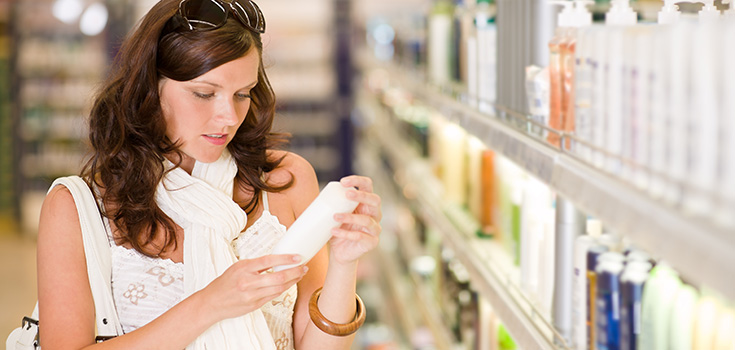Even ‘Organic’ Foods May Contain Health Traps, Especially for Kids

Buying organic is a great way to avoid pesticides, additives, and other toxic substances, but it is important to completely identify the full organic integrity of your food items. Unfortunately, many mega corporations like Kraft have begun releasing products under brands that appear to be environmentally and health conscious, yet they utilize the same dirty tricks of their parent companies through deceptive labeling and incomplete information. With around 78% of families now buying organic, it’s important to distinguish the good from the bad.
You may not be aware that a product can be labeled as organic while containing up to 30% non-organic ingredients. In fact, unless you purchase only food items labeled as 100% organic, you may be consuming food that is not entirely organic unknowingly. This, of course, is an example of deceptive consumer labeling. Regulated by the USDA, the government organization allows corporations to run wild with confusing labeling tactics that oftentimes require hours of study to truly understand.
Deceptive Labeling | GMOs, Pesticides Go Incognito
One highly confusing term that is widely used is the ‘all natural’ stamp. Though it does not express that the product is organic, many health conscious shoppers think that it should make the product at least a bit healthier. What does it mean? Well, absolutely nothing. As revealed in a shocking report by the Cornucopia Institute, not only do a large percentage of ‘natural’ cereal products contain genetically modified ingredients and pesticides, but so do many products with the “Non-GMO” label. In fact, products labeled “Non-GMO” like Whole Foods’ 365® Corn Flakes contained more than 50% genetically modified corn. These include products especially labeled for kids.
As more and more families begin to shop for organic produce and food items, it is essential that these organic myths are dispelled once and for all.
According to the Organic Trade Association in a recent survey, the number of families seeking organic food is skyrocketing. About 4 in 10 families now say they’re buying more organic products than they did just one year ago, and the top reason for doing so is to provide healthy nutrition for themselves and their children. It is also very important to note that non-organic ingredients and deceptive labeling is not the only troubling organic health trap that may be affecting you and your family.
Seemingly-healthy snacks and quick meal items may appear to be healthy if they carry the organic label, but the concerning truth is that some of these products are only marginally better than conventional food items in a number of ways. Processed chips carrying the organic label, for example, are still highly nutrient depleted and contain a carcinogenic chemical as a result of the frying process. The benefit, however, is that these chips do not contain partially hydrogenated oils or genetically modified ingredients like many conventional chips.
“There is so much on the market right now targeting parents who want to do the right thing,” says Dana Davis, a dietician based out of New York University’s Department of Nutrition, Food Studies, and Public Health. “Kid products in particular have highly misleading health claims—parents have to educate themselves.”
There is no question that buying any form of organic is much healthier than conventional food items, but you may have to ask yourself if you fully know what you are consuming behind that organic label. It is ideal to only purchase locally grown organic produce and products marked with the ‘100% organic’ label. In addition, try making your own foods free of packaging instead of resorting to processed snacks and quick frozen meals.

Something else to consider is where the food was processed/grown. If fluoridated water is used they can still call the product organic because it isn't the growers/processors fault the water is contaminated. I just grow my own food because it just got to time consuming to look everything up to make sure I was getting what I actually wanted.
Trying to buy healthy food not contaminated with poison is a minefield. I seem to spend more and more time reading labels, though I think it's worth the effort. The government should do something useful for a change and subsidise organic produce, too many poor people are forced to consume toxin-laden 'food'.
This is troubling: "In fact, products labeled “Non-GMO” like Whole Foods’ 365® Corn Flakes contained more than 50% genetically modified corn." I found it interesting when I searched on Whole Foods site today and found this Non-GMO Verified Products List http://wholefoodsmarket.com/specialdiets/MW_OAK_N… . The 365 Corn Flakes are not listed as non-GMO verified on Whole Foods site which was last updated on Jan 9, 2012.
I read about this issue on Cornucopia's site recently and stopped buying Barbara's shredded wheat, even though it is otherwise unadulterated in processing and great for an MSG sensitive person.